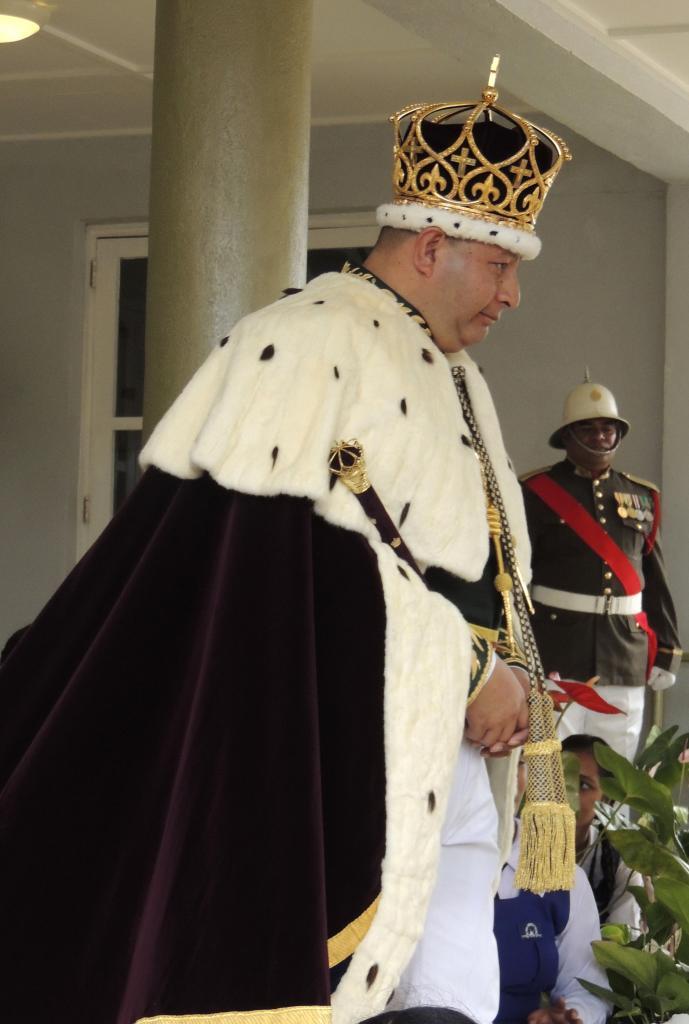Tonga stands out for its lush nature and the stunning beauty of its islands and the crystal-clear waters that surround them, as well as for the rhythmic pace at which human actions move. The paradise, we would say with that ethnocentric vision that characterizes us around here. And yet, in the distant Kingdom of Tonga, paraphrasing the famous quote from Hamlet about Denmark, something smells fishy. This Pacific nation, composed of 177 islands -most of them uninhabited- with just over 110,000 inhabitants, struggles to fully establish its fragile democracy, which is now being seriously shaken once again by the actions of the Tongan sovereign, Tupou VI.
Although the current Constitution establishes that it is a parliamentary monarchy, the king is not willing to accept a ceremonial role without effective political powers. On the contrary, Tupou VI likes to be in charge. A lot. And he has just had his way by pulling all the strings to have Parliament, in collusion with the current prime minister -very much in favor of the Palace, unlike his predecessor- approve a surprising law by which everything that used to depend on the Ministry of Foreign Affairs, logically subordinated to the direction and control of the Government, now exclusively depends on the monarch. In fact, the regulation, justified by the "need to modernize and strengthen the framework for the management and development of diplomatic and consular relations, as well as to improve immigration control in accordance with national interests," establishes that the new department will now be called His Majesty's Diplomatic Service. Crystal clear.
Opposition representatives have not hesitated to cry foul against what they consider a high-handed move that seriously jeopardizes the constitutional system. One of the most critical voices, prominent Tongan lawyer Teisa Pohiva -daughter of the late Prime Minister Akilisi Pohiva- warned in statements to PMN News that "the changes will strip essential powers from the Executive." And in local media like Kaniva Tonga, they lamented that "the reforms aimed at transferring executive power from the Monarchy to Parliament are directly undermined, and the fragile democratic progress of the country is threatened." Supporters of the new measure, on the other hand, argue that in an increasingly complex geopolitical context, it was essential to strengthen and centralize the archipelago's foreign policy, which largely depends on foreign aid, and it is reminded that the Constitution grants the king a central role in the field of diplomacy.
Tupou VI is stirring up trouble once again. Last year, Tonga experienced the most delicate political crisis of his reign. It all started when Chief Prime Minister Siaosi Sovaleni, who had been governing with a weak parliamentary majority since December 2021, announced a Cabinet reshuffle in which he also took on the Defense portfolio and appointed a woman as Foreign Minister for the first time. Immediately, the king met with his Privy Council displeased with the changes, and this influential body issued a statement indicating that the sovereign withdrew his "confidence and consent" to both appointments. The clash of forces was set. A bitter debate about the extent to which Tupou VI could veto ministerial appointments by the head of the Executive muddled everything for weeks. In the end, the sovereign had his way. The prime minister had to bow down after several months and addressed Parliament to announce his resignation as Defense Minister and the dismissal of the Foreign Minister. His political weakness was exploited by opposition sectors, who maneuvered to orchestrate a motion against him that led to Sovaleni's resignation.
Since Christmas, Aisake Valu Eke has been leading the Tongan government, a leader with a long political career, which has led him in the past to head, among others, the Finance portfolio. This prime minister seems very aligned with the king's demands. In fact, with him in office, in January he was appointed Minister of Foreign Affairs and Defense... guess who? None other than the heir to the throne, Tupou VI's eldest son, Prince Tupoutoa Ulukalala, who will now report directly to his father regarding the former.
Tupou VI ascended to the Head of State in 2012, following the death of his brother, King Tupou V. Still during his brother's lifetime, in 2010, Tonga left behind its quasi-feudalistic era when the country underwent a profound constitutional reform that addressed the pro-democratic demands that had been occurring since the 1970s and culminated in a very violent episode in 2006, with weeks of riots and protests in the capital and other islands. The first democratic elections in 2010 were seen as a great gesture of national reconciliation. The archipelago transformed into a constitutional monarchy, and the head of the Government began to be elected by the elected representatives of the National Assembly and not directly by the monarch, who lost his almost absolute powers.
However, analysts agree that Tupou VI is much more reluctant than his brother was to embrace democratic reforms, and his principles are as conservative as those that characterized his father, Tupou IV, who reigned for four decades between 1965 and 2006.
Tonga, like all its Pacific neighbors, is a nation severely affected by the consequences of climate change. Just recently, there has been a sharp increase in dengue cases in the region, especially worrying in Samoa, Fiji, and Tonga, according to the World Health Organization.
The Tongan Crown Prince himself chaired the Pacific Islands Forum last week, a meeting where they once again tried to raise their voices to the world to warn of the devastation that will come if nothing is done to combat global warming. And, of course, in the face of such an apocalyptic reality, it is unfortunately not surprising that many Tongans do not feel it is a top priority to defend the attacks on their fragile democracy.
